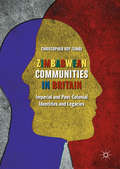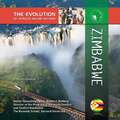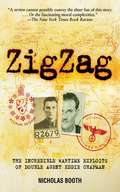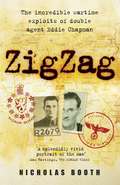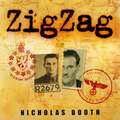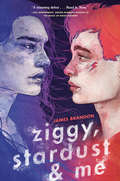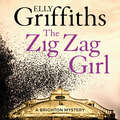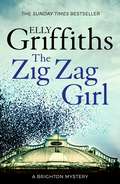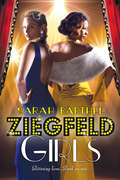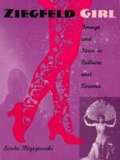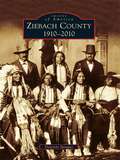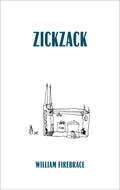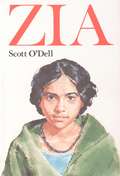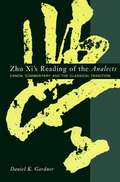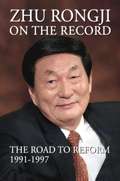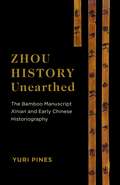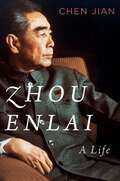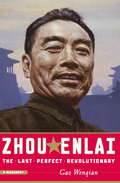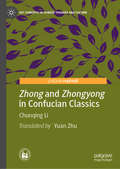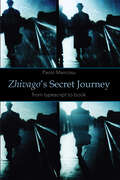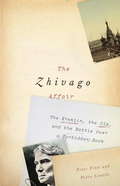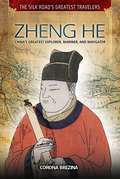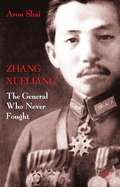- Table View
- List View
Zimbabwean Communities in Britain: Imperial And Post-colonial Identities And Legacies
by Christopher Roy ZembeUsing Zimbabwean communities in Britain as a case study, this book explores how imperial and post-colonial history has shaped and continues to shape African immigrant communities.<P> Analyses why attempts to create a unified diaspora identity by some African immigrant communities proved to be an emotive process which could not conceal historic ethnic or racial tensions and prejudices.<P> Highlights the increasing diversity of African immigrants in Britain, focusing on the dynamics and differences even within the relatively small Zimbabwean community.<P> This book examines why Zimbabwean immigrants in Britain should be viewed as a product of ethno-racial identities and prejudices developed and nurtured during the colonial and post-colonial phases of Zimbabwe’s history. In the absence of shared historic socio-economic or cultural commonalities, the book will tackle the key question: ‘Are Zimbabweans in Britain demarcated by race and ethnicity an imagined community?’ Through an analysis of personal interviews, and secondary and primary sources, it identifies and engages historical experiences that had been instrumental in constructing diasporic identities and integration processes of Zimbabwean immigrants. With most literature tending to create perceptions that Zimbabwean immigrants are a monolithic community of Blacks, the book’s comparative analysis of Blacks, Whites, Coloureds and Asians unveils a multi-racial community fragmented by historic racial and ethnic allegiances and prejudices. It is essential reading for scholars and researchers interested in migration, African Diaspora, and colonial and post-colonial studies.
Zimbabwe (The Evolution of Africa's Major Nations)
by Michael BaughanRhodesia, a country in southern Africa, was a fairly prosperous British colony until the mid-1960s; however, the black African majority of Rhodesia was ruled by a handful of white leaders. The country fought Great Britain in a 15-year war for independence, which it ultimately achieved in 1980. Zimbabwe, as the new country became known, saw its prosperity decline dramatically under Robert Mugabe, its first ruler. He seized total control over the country and persecuted his political enemies. In recent years, Mugabe's policies--such as military involvement in the Congolese civil war and a land redistribution program--as well as government corruption have devastated the country economically. Although Mugabe's agreed to a power-sharing arrangement in 2009, many political issues remain unresolved. As a result, the future of Zimbabwe is uncertain.
The Zigzag Way
by Anita DesaiIn this seductive landscape, a young American stumbles upon an unlikely path to self-discovery. Eric is a newly minted historian just out of graduate school, unsure of his past choices and future options.
Zigzag: The Incredible Wartime Exploits of Double Agent Eddie Chapman
by Nicholas BoothThe most remarkable double agent of World War II, Eddie Chapman was witty, handsome, and charming. Too bad he was also a con man, womanizer, and safe-cracker. To the British, though, he was known as ZigZag, one of MI5's most valuable agents. To the Abwehr-German military intelligence-he was known as Fritzchen (Little Fritz), and was believed to be one of their most valued and trusted spies. For three long years, Eddie played this dangerous double game, daily risking life and limb to help the Allies win the war. He was so charming that his German handler, Baron Stefan von Gröning, thought of Fritzchen as the son he never had. The Germans even awarded him the Iron Cross for spying for the Reich! They sent him to Britain, with the mission to blow up the De Havilland aircraft factory. How he and MI5 convinced the Germans that he had accomplished his mission stands as one of history's greatest acts of counterintelligence.Until now, Eddie Chapman's extraordinary double life has never been told, thwarted by the Official Secrets Act. Now all the evidence-including Eddie's MI5 file-has finally been released, paving the way for Nicholas Booth's enthralling account of Eddie's long and extraordinary life. A film of ZigZag is in the works with Tom Hanks producing and Mike Newell directing.
Zigzag: The incredible wartime exploits of double agent Eddie Chapman
by Nicholas BoothEddie Chapman was a womaniser, blackmailer and safecracker. He was also a great hero - the most remarkable double agent of the Second World War. Chapman became the only British national ever to be awarded an Iron Cross for his work for the Reich. He was also the only German spy ever to be parachuted into Britain twice. But it was all an illusion: Eddie fooled the Germans in the same way he conned his victims in civilian life. He was working for the British all along. Until now, the full story of Eddie Chapman's extraordinary exploits has never been told, thwarted by the Official Secrets Act. Now at last all the evidence has been released, including Eddie's M15 files, and a complete account of what he achieved is told in this enthralling book.
Zigzag: The incredible wartime exploits of double agent Eddie Chapman
by Nicholas BoothEddie Chapman was a womaniser, blackmailer and safecracker. He was also a great hero - the most remarkable double agent of the Second World War. Chapman became the only British national ever to be awarded an Iron Cross for his work for the Reich. He was also the only German spy ever to be parachuted into Britain twice. But it was all an illusion: Eddie fooled the Germans in the same way he conned his victims in civilian life. He was working for the British all along. Until now, the full story of Eddie Chapman's extraordinary exploits has never been told, thwarted by the Official Secrets Act. Now at last all the evidence has been released, including Eddie's M15 files, and a complete account of what he achieved is told in this enthralling book.
Zigzag: The incredible wartime exploits of double agent Eddie Chapman
by Nicholas BoothEddie Chapman was a womaniser, blackmailer and safecracker. He was also a great hero - the most remarkable double agent of the Second World War. Chapman became the only British national ever to be awarded an Iron Cross for his work for the Reich. He was also the only German spy ever to be parachuted into Britain twice. But it was all an illusion: Eddie fooled the Germans in the same way he conned his victims in civilian life. He was working for the British all along. Until now, the full story of Eddie Chapman's extraordinary exploits has never been told, thwarted by the Official Secrets Act. Now at last all the evidence has been released, including Eddie's M15 files, and a complete account of what he achieved is told in this enthralling book.
Ziggy, Stardust and Me
by James BrandonThe year is 1973. The Watergate hearings are in full swing. The Vietnam War is still raging. And homosexuality is still officially considered a mental illness. <P><P> In the midst of these trying times is sixteen-year-old Jonathan Collins, a bullied, anxious, asthmatic kid, who aside from an alcoholic father and his sympathetic neighbor and friend Starla, is completely alone. <P><P>To cope, Jonathan escapes to the safe haven of his imagination, where his hero David Bowie's Ziggy Stardust and dead relatives, including his mother, guide him through the rough terrain of his life. In his alternate reality, Jonathan can be anything: a superhero, an astronaut, Ziggy Stardust, himself, or completely "normal" and not a boy who likes other boys. When he completes his treatments, he will be normal--at least he hopes. But before that can happen, Web stumbles into his life. Web is everything Jonathan wishes he could be: fearless, fearsome and, most importantly, not ashamed of being gay. <p><p> Jonathan doesn't want to like brooding Web, who has secrets all his own. Jonathan wants nothing more than to be "fixed" once and for all. But he's drawn to Web anyway. Web is the first person in the real world to see Jonathan completely and think he's perfect. Web is a kind of escape Jonathan has never known. For the first time in his life, he may finally feel free enough to love and accept himself as he is. <p> A poignant coming-of-age tale, Ziggy, Stardust and Me heralds the arrival of a stunning and important new voice in YA.
The Zig Zag Girl: The Brighton Mysteries 1 (The Brighton Mysteries #1)
by Elly GriffithsBrighton, 1950. When a girl's body is found, cut into three, Detective Inspector Edgar Stephens is reminded of a magic trick, the Zig Zag Girl. The inventor of the trick, Max Mephisto, is an old friend of Edgar's. They served together in the war as part of a shadowy unit called the Magic Men. Max is still on the circuit, touring seaside towns in the company of ventriloquists, sword-swallowers and dancing girls. Changing times mean that variety is not what it once was, yet Max is reluctant to leave this world to help Edgar investigate. But when the dead girl turns out to be known to him, Max changes his mind. Another death, another magic trick: Edgar and Max become convinced that the answer to the murders lies in their army days. When Edgar receives a letter warning of another 'trick', the Wolf Trap, he knows that they are all in the killer's sights...(P) 2014 Quercus Editions Ltd
The Zig Zag Girl: The Brighton Mysteries 1 (The Brighton Mysteries #1)
by Elly GriffithsMagic, murder and a mystery rooted in a murky wartime past. Meet DI Stephens and Max MephistoBrighton, 1950. When the body of a girl is found, cut into three, Detective Inspector Edgar Stephens is reminded of a magic trick, the Zig Zag Girl. The inventor of the trick, Max Mephisto, is an old friend of Edgar's. They served together in the war as part of a shadowy unit called the Magic Men. Max is still on the circuit, touring seaside towns in the company of ventriloquists, sword-swallowers and dancing girls. Changing times mean that variety is not what it once was, yet Max is reluctant to leave this world to help Edgar investigate. But when the dead girl turns out to be known to him, Max changes his mind. Another death, another magic trick: Edgar and Max become convinced that the answer to the murders lies in their army days. When Edgar receives a letter warning of another 'trick', the Wolf Trap, he knows that they are all in the killer's sights...
Ziegfeld Girls
by Sarah BarthelNew York City, 1914. Suzanne and Jada. Entwined as sisters. Talented and resourceful. Black and white. Wealthy employer and devoted maid. Together, they realize Suzanne’s dream to see her name in lights on Broadway as she becomes the dazzling Ziegfeld Follies’ rising new star. But Jada’s superb voice and dance skills give her an unexpected shot at her own success—and her own life. And when a jealous Suzanne reveals a shattering secret, their friendship becomes a bitter rivalry. Floundering without Jada, Suzanne consoles herself with dashing suitors and champagne nights. Jada transforms into Harlem’s hottest nightclub sensation, complete with financial security and a promising new beau. But when Suzanne is plagued with increasingly dangerous “accidents,” and both women receive threatening notes, they discover just how cold and hard staying on top can be. Now in the face of relentless racism and vicious obsession, Suzanne and Jada make an uneasy alliance to find out the truth. And with the Follies’ lavish world in peril and their careers on the line, their pursuit of love, success, and equality could cost more than they ever dreamed. Set against a glittering background of vintage glamour, famous figures of the time and high-stakes, Ziegfeld Girls is an unforgettable novel of two extraordinary women seizing their own fates in a pivotal era.
Ziegfeld Girl: Image and Icon in Culture and Cinema
by Linda MizejewskiIn the first decades of the twentieth century, Broadway teemed with showgirls, but only the Ziegfeld Girl has survived in American popular culture--as a figure of legend, nostalgia, and camp. Featured in Florenz Ziegfeld Jr.'s renowned revues, which ran on Broadway from 1907 to 1931, the Ziegfeld Girl has appeared in her trademark feather headdresses, parading and posing, occasionally singing and dancing, in numerous musicals and musical films paying direct or indirect homage to the intrepid producer and his glorious Girl. Linda Mizejewski analyzes the Ziegfeld Girl as a cultural icon and argues that during a time when American national identity was in flux, Ziegfeld Girls were both products and representations of a white, upscale, heterosexual national ideal. Mizejewski traces the Ziegfeld Girl's connections to turn-of-the-century celebrity culture, black Broadway, the fashion industry, and the changing sexual and gender identities evident in mainstream entertainment during the Ziegfeld years. In addition, she emphasizes how crises of immigration and integration made the identity and whiteness of the American Girl an urgent issue on Broadway's revue stages during that era. Although her focus is on the showgirl as a "type," the analysis is intermingled with discussions of figures like Anna Held, Fanny Brice, and Bessie McCoy, the Yama Yama girl, as well as Ziegfeld himself. Finally, Mizejewski discusses the classic American films that have most vividly kept this showgirl alive in both popular and camp culture, including The Great Ziegfeld, Ziegfeld Girl, and the Busby Berkeley musicals that cloned Ziegfeld's showgirls for decades. Ziegfeld Girl will appeal to scholars and students in American studies, popular culture, theater and performance studies, film history, gender studies, gay and lesbian studies, and social history.
Ziebach County: 1910-2010 (Images of America)
by Donovin SpragueSouth Dakota's north-central Ziebach County, established in 1911, is named for Frank M. Ziebach. The majority of the county lies within the boundaries of the Cheyenne River Sioux Reservation; small areas also lie within the Standing Rock Sioux Reservation. As the railroad penetrated the area, small towns sprang up. Dupree, the largest town in Ziebach County, was selected as the county seat. Founded in 1910, the town of Dupree celebrates its 100-year centennial with the publication of this history. The Ziebach County Historical Society is dedicated to preserving the history of the area's people, places, and events. A collection of nearly 200 photographs provides a glimpse into the past, along with modern development. Ziebach communities included Armstrong, Bridger, Chase, Cherry Creek, Dupree, Glad Valley, Iron Lightning, Redelm, Red Scaffold, Takini, and Thunder Butte.
Zickzack
by William FirebraceZigzagging through six locations on the edges of the German-speaking world, exploring them through politics, architecture, literature, film, art, music, food, and history.&“Zickzack&” is the German word for &“zigzag&”: hopping around, moving back and forth, never following a straight line, avoiding the monotony of one thing following another. Zickzack is William Firebrace&’s zigzagging exploration of six places on the edges of the German-speaking world. Deploying essays, narration, conversations, descriptions, and lists, Firebrace celebrates locations on defined and undefined borders, where cultures, languages, and histories mix. In his nonlinear wandering, he touches on ethnicity, topography, history, film, literature, myth, languages, and gastronomy. These locales are not the famous cities of Berlin, Vienna, and Zurich, but areas that straddle countries, geographies, and influences. Two are within Germany itself, one lies on (and over) the border with Poland, and three were once within the loose German cultural zone but now belong to other countries. Firebrace explores Strasbourg, capital of Alsace and part of a long-running territorial dispute between France and Germany; Königsberg, which spent some of the twentieth century as Kaliningrad; and Görlitz and Zgorcelec, twin cities on either side of a river. He plays hopscotch with churches in Backstein and takes a train trip past cities with double names—Sterzing-Vipiteno, Brixen-Bressanone, Klausen-Chiusa, signs of the double culture, where everything happens twice but in a slightly different way. In the zigzags of the German-speaking world, the original culture sometimes survives, sometimes is deliberately destroyed, sometimes merges with other cultures, and often, if submerged, resurfaces in a different form.
Zia
by Scott O'DellA young Indian girl, caught between the traditional world of her mother and the present world of the mission, is helped by her Aunt Karana, whose story was told in Island of the Blue Dolphins.
Zhu Xi's Reading of the Analects: Canon, Commentary, and the Classical Tradition
by Daniel GardnerThe Analects is a compendium of the sayings of Confucius (551–479 b.c.e.), transcribed and passed down by his disciples. How it came to be transformed by Zhu Xi (1130–1200) into one of the most philosophically significant texts in the Confucian tradition is the subject of this book.Scholarly attention in China had long been devoted to the Analects. By the time of Zhu Xi, a rich history of commentary had grown up around it. But Zhu, claiming that the Analects was one of the authoritative texts in the canon and should be read before all others, gave it a still more privileged status in the tradition. He spent decades preparing an extended interlinear commentary on it. Sustained by a newer, more elaborate language of metaphysics, Zhu's commentary on the Analects marked a significant shift in the philosophical orientation of Confucianism—a shift that redefined the Confucian tradition for the next eight centuries, not only in China, but in Japan and Korea well.Gardner's translations and analysis of Zhu Xi's commentary on the Analects show one of China's great thinkers in an interesting and complex act of philosophical negotiation. Through an interlinear, line-by-line "dialogue" with Confucius, Zhu effected a reconciliation of the teachings of the Master, commentary by later exegetes, and contemporary philosophical concerns of Song-dynasty scholars. By comparing Zhu's reading of the Analects with the earlier standard reading by He Yan (190–249), Gardner illuminates what is dramatically new in Zhu Xi's interpretation of the Analects.A pioneering study of Zhu Xi's reading of the Analects, this book demonstrates how commentary is both informed by a text and informs future readings, and highlights the importance of interlinear commentary as a genre in Chinese philosophy.
Zhu Rongji on the Record
by Henry A. Kissinger Rongji Zhu Helmut SchmidtChina's explosive transformation from a planned economy to a more market-oriented one over the past three decades owes much to the charismatic reformer Zhu Rongji. His pragmatism and strong work ethic have been key forces in China's drive to greater modernization and global stature. He served as the mayor and party chief in Shanghai from 1987 to 1991, as vice premier of China from 1991 to 1998, and then as premier until 2003. This monumental collection brings together, for the first time in English, over one hundred important speeches, articles, letters, and instructions written during his term as vice premier, when he had major responsibility for fulfilling Deng Xiaoping's vision and setting China on a new and fruitful course.During this time, Zhu embarked on a plan to reduce the size of government and reform the heavily indebted banking system and state-owned enterprises as well as the housing and health care systems. His sweeping efforts ranged from lobbying for the establishment of stock exchanges to revitalizing agriculture through the introduction of a modern grain market. The ramifications of these reforms are still being felt throughout China and the globe, and Zhu Rongji on the Record provides a real-time look at these plans as they were being formulated during the 1990s.These pages also reflect the forthright personality that gained great popularity with the Chinese public. Zhu vows to speak the truth and avoid "empty talk," as he tells his compatriots. "We must tackle [reform] with both hands, and both hands must be strong." To this end, he provides lists of "musts" and "mustn'ts" that will ensure a "soft landing" during China's transition and calls for swift and resolute action, both in reform and in fighting corruption.In addition to revealing the evolution of Zhu's thinking and demonstrating how he helped transform the world's most populous nation, this book provides insight into the course of China's economic reform from the 1990s through the first part of the twenty-first century-a period of time that is key to the global order today.Publication of this English edition of Zhu Rongji on the Record will be an important milestone in Sino-U.S. cultural exchange and a significant contribution to greater understanding between the world's two largest economic powers.
Zhou History Unearthed: The Bamboo Manuscript Xinian and Early Chinese Historiography
by Yuri PinesThere is a stark contrast between the overarching importance of history writing in imperial China and the meagerness of historical texts from the centuries preceding the imperial unification of 221 BCE. However, recently discovered bamboo manuscripts from the Warring States period (453–221 BCE) have changed this picture, leading to reappraisals of early Chinese historiography. These manuscripts shed new light on questions related to the production, circulation, and audience of historical texts in early China; their different political, ritual, and ideological usages; and their roles in the cultural and intellectual dynamics of China’s vibrant pre-imperial age.Zhou History Unearthed offers both a novel understanding of early Chinese historiography and a fully annotated translation of Xinian (String of Years), the most notable historical manuscript from the state of Chu. Yuri Pines elucidates the importance of Xinian and other recently discovered texts for our understanding of history writing in Zhou China (1046–255 BCE), as well as major historical events and topics such as Chu’s cultural identity. Pines explores how Xinian challenges existing interpretations of the nature and reliability of canonical historical texts on the Zhou era, such as Zuo zhuan (Zuo Tradition/Commentary) and Records of the Historian (Shiji). A major work of scholarship and translation, Zhou History Unearthed sheds new light on early Chinese history and historiography, demonstrating how new archaeological findings are changing our knowledge of China’s pre-imperial days.
Zhou Enlai: A Life
by Jian ChenThe definitive biography of Zhou Enlai, the first premier and preeminent diplomat of the People’s Republic of China, who protected his country against the excesses of his boss—Chairman Mao.Zhou Enlai spent twenty-seven years as premier of the People’s Republic of China and ten as its foreign minister. He was the architect of the country’s administrative apparatus and its relationship to the world, as well as its legendary spymaster. Richard Nixon proclaimed him “the greatest statesman of our era.” Yet Zhou has always been overshadowed by Chairman Mao. Chen Jian brings Zhou into the light, offering a nuanced portrait of his complex life as a revolutionary, a master diplomat, and a man with his own vision and aspirations who did much to make China, as well as the larger world, what it is today.Born to a declining mandarin family in 1898, Zhou received a classical education and as a teenager spent time in Japan. As a young man, driven by the desire for China’s development, Zhou embraced the communist revolution as a vehicle of China’s salvation. He helped Mao govern through a series of transformations, including the disastrous Great Leap Forward and Cultural Revolution. Yet, as Chen shows, Zhou was never a committed Maoist. His extraordinary political and bureaucratic skill, combined with his centrist approaches, enabled him to mitigate the enormous damage caused by Mao’s radicalism.When Zhou died in 1976, the PRC that we know of was not yet visible on the horizon; he never saw glistening twenty-first-century Shanghai or the broader emergence of Chinese capitalism. But it was Zhou’s work that shaped the nation whose influence and power are today felt in every corner of the globe.
Zhou Enlai: The Last Perfect Revolutionary
by Gao WenqianWhen Gao Wenqian first published this groundbreaking, provocative biography in Hong Kong, it was immediately banned in the People’s Republic. Using classified documents spirited out of the China, he offers an objective human portrait of the real Zhou Enlai, the premier of the People’s Republic of China from 1949 until his death in 1976. Often touted as “the last perfect revolutionary,” Zhou is “a modern saint” who offered protection to his people during the Cultural Revolution, and an icon who allows modern Chinese to find an admirable figure in what was a traumatic and bloody era. But his greatest gift was to survive, at almost any price, thanks to his acute understanding of where political power resided at any one time.
Zhong and Zhongyong in Confucian Classics (Key Concepts in Chinese Thought and Culture)
by Chunqing LiThis Key Concept pivot explores the trajectory of the semantic generation and evolution of two core concepts of ancient Chinese Confucianism, ‘Zhong’ (middle) and ‘Zhongyong’ (golden mean). In the pre-Qin period, Confucius advocated ‘middle line’ and ‘golden mean’ as the highest standards for gentlemanly behaviour and culture. In The Doctrine of the Mean the Confucian classic of the late Warring States Period, ‘middle’ obtained the ontological meaning of ‘great fundamental virtues of the world’, due to the influence of Taoism and Yinyang School. It became not only the norm of human behaviours, but also the law governing the operation of heaven and earth. Since then, idealist Confucian scholars of the Song and Ming dynasties have developed the meaning of ‘middle’ from the perspective of the relationships between heaven and man, a fundamental norm of Confucian ethics.
Zhivago's Secret Journey: From Typescript to Book
by Paolo MancosuPaolo Mancosu continues an investigation he began in his 2013 book Inside the Zhivago Storm, which the New York Book Review of Books described as "a tour de force of literary detection worthy of a scholarly Sherlock Holmes". In this book Mancosu extends his detective work by reconstructing the network of contacts that helped Pasternak smuggle the typescripts of Doctor Zhivago outside the Soviet Union and following the vicissitudes of the typescripts when they arrived in the West. Mancosu draws on a wealth of firsthand sources to piece together the long-standing mysteries surrounding the many different typescripts that played a role in the publication of Doctor Zhivago, thereby solving the problem of which typescript served as the basis of the first Russian edition: a pirate publication covertly orchestrated by the Central Intelligence Agency (CIA). He also offers a new perspective, aided by the recently declassified CIA documents, by narrowing the focus as to who might have passed the typescript to the CIA. In the process, Mancosu reveals details of events that were treated as top secret by all those involved, vividly recounting the history of the publication of Pasternak's epic work with all its human and political ramifications.
The Zhivago Affair: The Kremlin, the CIA, and the Battle Over a Forbidden Book
by Peter Finn Petra CouvéeDrawing on newly declassified government files, this is the dramatic story of how a forbidden book in the Soviet Union became a secret CIA weapon in the ideological battle between East and West. In May 1956, an Italian publishing scout took a train to a village just outside Moscow to visit Russia's greatest living poet, Boris Pasternak. He left carrying the original manuscript of Pasternak's first and only novel, entrusted to him with these words: "This is Doctor Zhivago. May it make its way around the world." Pasternak believed his novel was unlikely ever to be published in the Soviet Union, where the authorities regarded it as an irredeemable assault on the 1917 Revolution. But he thought it stood a chance in the West and, indeed, beginning in Italy, Doctor Zhivago was widely published in translation throughout the world. From there the life of this extraordinary book entered the realm of the spy novel. The CIA, which recognized that the Cold War was above all an ideological battle, published a Russian-language edition of Doctor Zhivago and smuggled it into the Soviet Union. Copies were devoured in Moscow and Leningrad, sold on the black market, and passed surreptitiously from friend to friend. Pasternak's funeral in 1960 was attended by thousands of admirers who defied their government to bid him farewell. The example he set launched the great tradition of the writer-dissident in the Soviet Union. In The Zhivago Affair, Peter Finn and Petra Couvée bring us intimately close to this charming, passionate, and complex artist. First to obtain CIA files providing concrete proof of the agency's involvement, the authors give us a literary thriller that takes us back to a fascinating period of the Cold War--to a time when literature had the power to stir the world.(With 8 pages of black-and-white illustrations.)From the Hardcover edition.
Zheng He: China's Greatest Explorer, Mariner, and Navigator (The Silk Road's Greatest Travelers)
by Corona BrezinaZheng He was the commander of a vast Chinese fleet known as the treasure fleet. In the early fifteenth century, he led the fleet on seven journeys throughout the South China Sea and Indian Ocean, serving as ambassador to the barbarian nations in need of a civilizing influence. Under Zheng He’s command, the Chinese treasure fleet achieved one of the most impressive maritime displays the world had ever seen. This engaging volume covers the fleet’s travels, which covered more than 40,000 miles and included sea routes along the Silk Road, to cities and kingdoms from southern Asia to east Africa.
Zhang Xueliang
by Aron ShaiThe first book to tell the strange and fascinating story of General Zhang Xue-liang, the Chinese-Manchurian 'Young Marshall' - a man who left an indelible mark on the history of modern China, but few know his story. Unlocking the mystery of this man's life, Aron Shai helps to shed light on 20th-century China.
